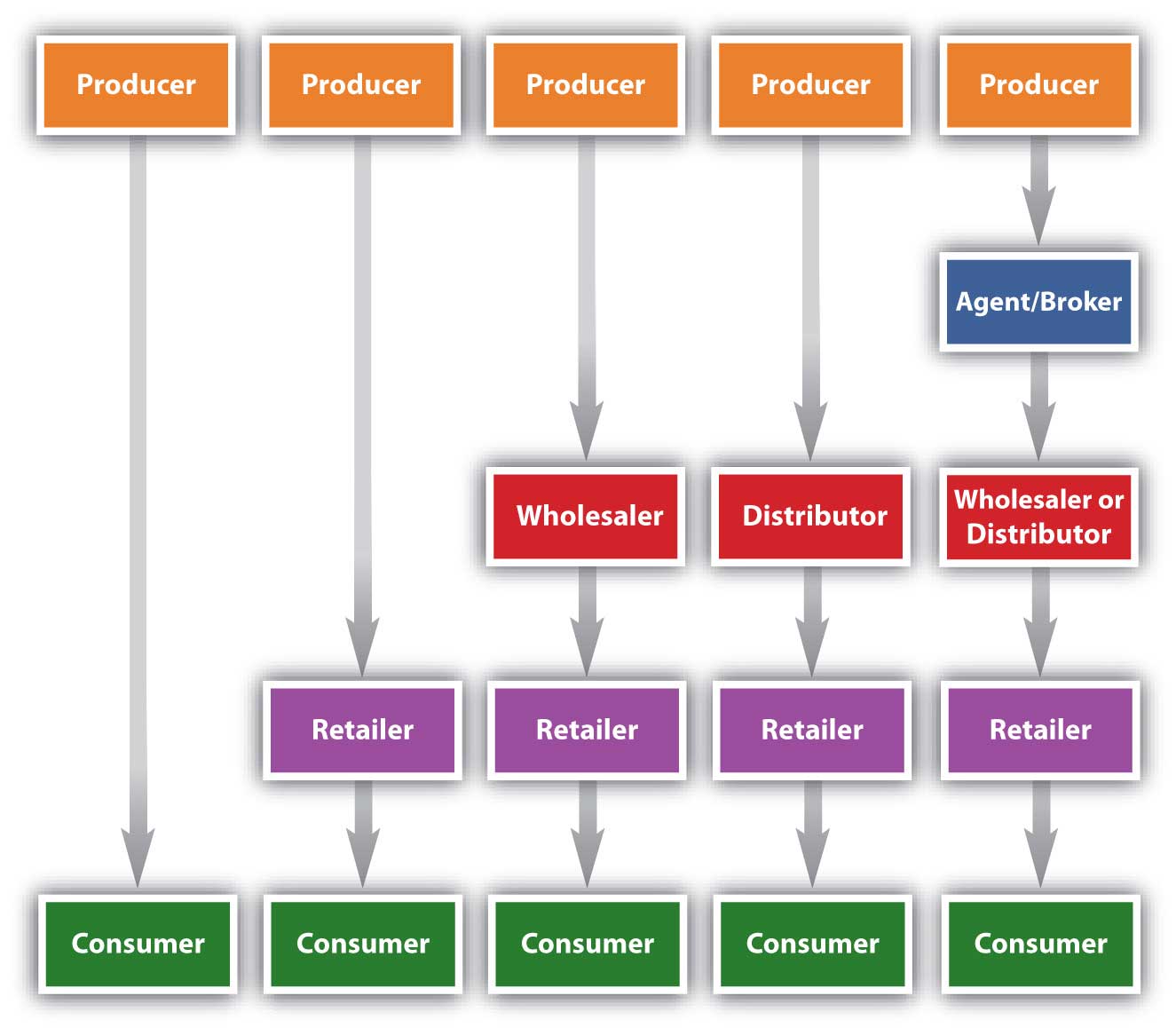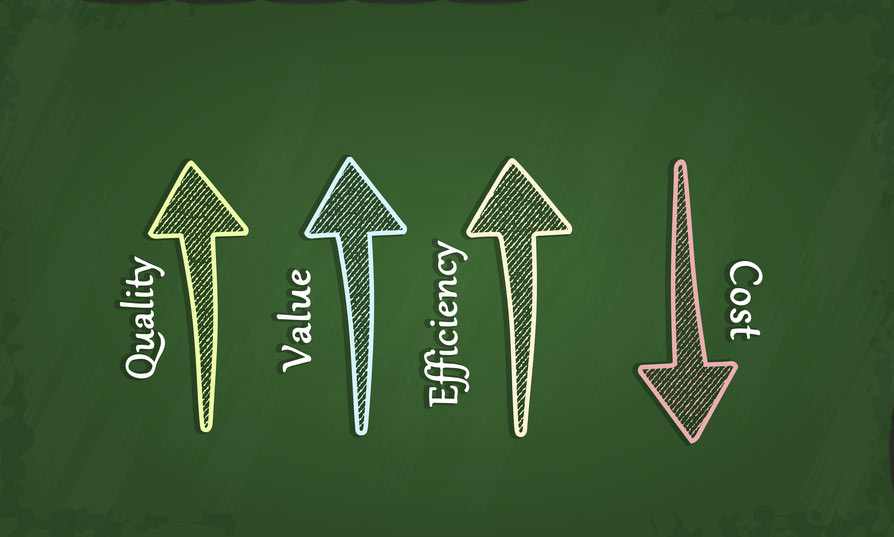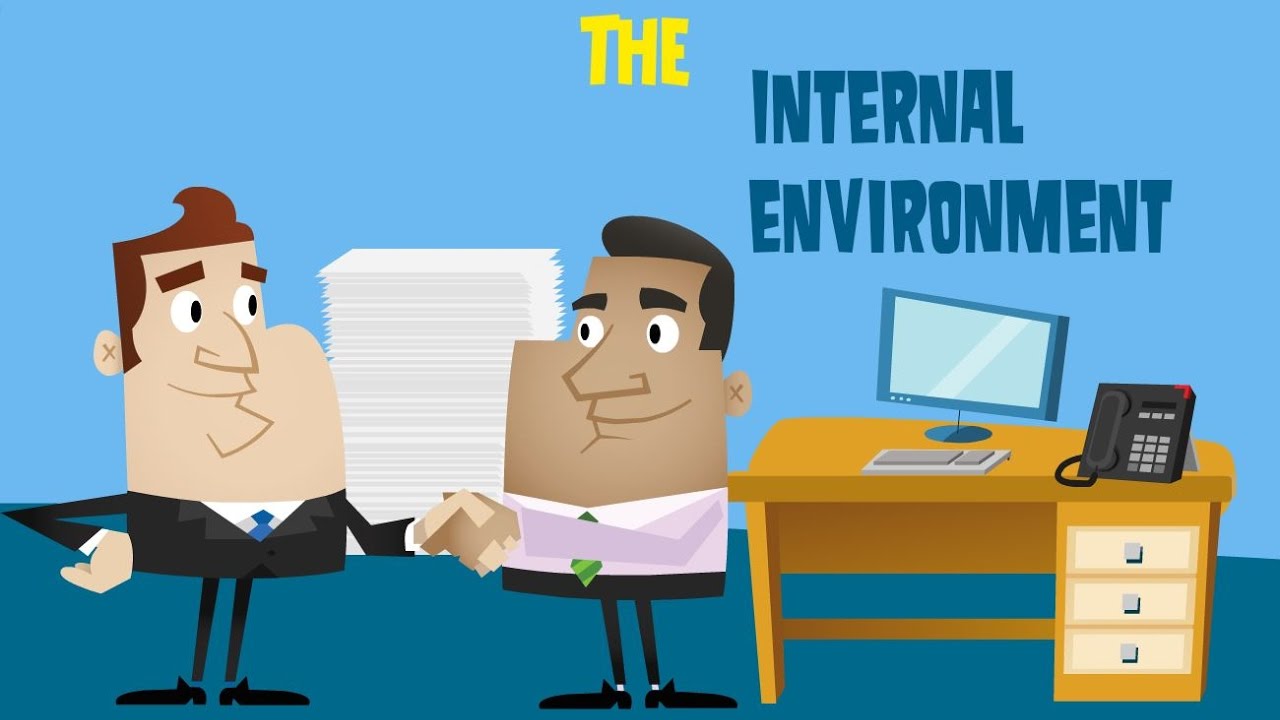What is Channel Marketing? Types, Benefits, Challenges, and More
The traditional growth model of selling products to consumers tend to become slower and less convenient. Hence, channel marketing is born which makes the selling and delivery process faster and more effective. As the practice of working with a channel partner to take your products or services to market, channel marketing allows you to spend more time improving the product quality.
This model is more common these days thanks to its ability to facilitate products’ movement from the manufacturer to the consumer. However, it seems to be a strange term that few businesses understand clearly. Therefore, we have this post today, which will help you know What channel marketing is, types, benefits, challenges, and everything you need to consider in terms of channel marketing.
Let’s get started!
What is channel marketing?
It is very typical when producers or manufacturers do not sell their products directly to consumers. Instead, those products are sold via one or many channel partners. That’s how channel marketing works. Channel marketing is the process of distribution of products or services from start to end. The mean includes people, activities, and intermediary organizations responsible for transferring goods from the point of manufacturing to the point of consumption.
Let’s take a familiar example of the cereal bowl you have every morning for breakfast. How is it transferred to you according to channel marketing?
It starts from a field of wheat where the channel begins. Then, it is moved to a grain dispensary, the cereal factory, through a grocery distributor. And next, it reaches the shelves of a store, which will be bought by someone. The channel ends when the cereal is in a bowl on someone’s dining table. So, the product had gone through many channel partners to get itself to market and into your breakfast meal. It gets to your bowl from a distributor or a grocery store rather than directly through the producer.
All third-party you work with are called channel marketing partners, who will make sure the products reach the target audience. They can be groups like distributors, resellers, affiliates, consultants, agents, and other types of third-party companies.
Channel marketing is not just about promoting the products via advertising and marketing channels but maintaining a mutually beneficial relationship between you and your channel marketing partners. Those partners will help you reduce the delivery cost, improve efficiency, and product quality. And your partners also benefit from you, giving them a percentage of product sales or a discount on bulk purchases.
To sum up, if you do not have the resources to do sales and marketing works on your own, channel marketing and choosing the right partners are great models for you. It is a way for you and your partners to support each other in reaching a similar target of selling and helping consumers.
Read more:
- Focus Group Questions to Gain In-Depth Customer Insights
- 10 Outreach Marketing Techniques That Actually Work
- 10 Persuasive Behavioral Segmentation Examples!
- Persuasive Techniques in Advertising
Common types of channel marketing
As we have mentioned, when doing channel marketing, you need distributors, resellers, affiliates, consultants, agents, etc.
Resellers are who set up their pricing plan and manage their accounts. On the other hand, they benefit from using your products and selling your products to their network.
Here are some benefits a reseller can get:
- Removing your branding to sell theirs. This action is also called White labeling, which can help them increase brand awareness.
- Building their own pricing. Easily put, they can easily control how much they sell products. When they sell products or services, their use of your service is discounted, which means they gain more money.
- Having the direct point of contact at your business, which ensures they know they guide to use and offer your product for sale. They can get a direct point of contact from someone like an account manager.
You must have worked or encountered resellers without knowing. For example, Amazon is also a type of reseller. The difference is that they buy products in large numbers and sell them on Amazon themselves. What’s more, it is also one case of reselling when software businesses allow other companies to remove their branding on their products.
Those companies often change and customize the software before transferring to customers. Another reselling situation is when you see strange and unique brands to the store, especially the mattress store. It is understandable because many mattress manufacturers offer white labeling, and the brands you see in mattress stores may be renamed already.
Affiliates are channel partners giving you referrals via links to your site. In trading, they are provided with a custom web link that they can share through their websites, advertisements, or content. An affiliate will then gain a commission depending on how many times the link is clicked.
Affiliates are responsible for creating content and being subject matter experts. That means they can add your link to blog posts or web pages in a reasonable way. While you can get more traffic and sales for your business, they put an effort to get more visitors and a commission.
Similar to an affiliate, a consultant also gains a commission for their promotion of your business. What they often do is working directly with your consumers to help them use your product or service more effectively. To help you improve business promotion, they can create guest content, which will enhance the quality of the content.
Hence, consultants can get better recognition. Additionally, they can educate your customers by putting on events. Last but not least, they can be an expert resource that you can refer your customers to.
After knowing the responsibilities and benefits of some common channel partners, do you wonder how many types of channel marketing relationships are available? In fact, there are four types, which all include resellers, affiliates, consultants, distributors, and other partner types. Here are them:
-
Manufacturer to Customer: It is when the producer makes the goods and offer them directly to the consumer. This is economical and profitable for both parties when reaching customers right from the manufacturer. For example, this relationship is like when a baker sells his cake to customers.
-
Manufacturer to Retailer to Customer: It is when the manufacturer creates products and sells them to a retail company. The retailer will then sell them to customers. For example, we buy clothes or shoes at a local retail store.
-
Manufacturer to Wholesaler to Customer: It is quite similar to the second relationship. This one is when the manufacturer creates goods and sells them to a wholesale seller. Instead of delivering to customers with the original price, the wholesaler will offer the products at a reduced cost to consumers. For instance, the wholesaler Costco.
-
Manufacturer to Distributor to Reseller to Customer: This relationship experiences multiple channel partners. A manufacturer makes products and sends them to a distributor who has them taken to like-minded businesses. Resellers will then buy products from these businesses and sell to customers alongside their own products. A typical example is when a laptop producer associates with a distributor to deliver the products as many as possible. Then, resellers buy those devices and sell them to users with a printer or wifi package.

So, how to develop a channel marketing partnership? Follow four steps below:
-
Step 1: Identifying the right channel partners: Let’s take thorough research of the product they sell and the markets they sell in. This research and analysis need to be taken carefully and technically. Also, you have to compare with hard market data to find out the potential one.
-
Step 2: Pitching: Now you have to persuade your potential partners who you spend much time identifying to set up a relationship with you. Tell them that a channel partnership between you and them will bring about benefits for both. Remember not to just saying about what the benefits are but why they are benefits.
-
Step 3: Signing on an agreement: After convincing, let’s write an agreement with all the details clearly listed out by both parties. This step makes sure the channel partnership will work fluently because all pertinent details are already agreed upon in a contract before beginning.
-
Step 4: Getting started: It is high time you start planning to promote your products with your brand-new channel marketing model.
Benefits of channel marketing
Easier to reach customers
Channel marketing means there are sales channels for us to reach consumers. Producers tend to extend their reach thanks to the marketing initiatives of the resellers.
When the human-resources staffs work online to search for ways to engage employees, they are not likely to look for a product but for content to deal with their troubles. In case they were about to come across a reseller’s post that mentions your employee engagement and reward platform, it will surely bring about an increase in sales, which you won’t receive without those sales partners’ marketing initiatives.
What’s more, resellers often run many promotional or discount offers and special product displays. This foreshadows to manufacturers that it will take the marketing burden from them to the resellers.
Gain detailed information on your consumers
By doing channel marketing, your partners will provide you with information on your customer’s experience, which you won’t get if you directly offer your products to consumers.
Take an example of the laptop selling market when consumers buy laptops and additional software. They will be ready to share with the reseller what they think about the product, what they like, or a new competitor product they prefer. Imagine if you sell your laptops without the help of resellers, will you ever get such information?
When launching a channel marketing model, the relevant retail chains will tell you clearly which products sell well in their specific areas of operation. That means their feedbacks will devote to your plan of making or adjusting the products that meet the needs and wants of customers.
Take advantage of the credibility to generate more sales
Using a brand that is well known and trusted, you can make more sales because they know more about the interest of your potential audience than a new brand does.

Therefore, in choosing the partners to work with, you should use sites and stores that your customers love and trust. That is how the power of trust works. It means all joint marketing or promotional campaigns with such brands are likely to drive more foot traffic to the retail outlets selling your products. For example, you can choose a retailer working on Amazon, social media, or other major brands to leverage those marketplaces’ trust.
Get valuable data from resellers
It is quite similar. This benefit means your resellers will give you useful information to improve the quality of products and raise the market share. Also, the manufacturer will then receive valuable customer feedback and sales data from resellers.
Lower costs
When including a new location to your distribution map, you have to consider a large amount of money, let alone time and human resources. Instead, why don’t you use an existing distribution network to broaden the geographical reach of your business more cheaply and quickly?

Because retailers put your products on their shelves, letting customers go to the store to purchase them directly without ordering online, you don’t have to worry about extra stocking and delivery expenses.
Focus more on your core aptitudes
Working with channel marketing partners means they will help you much in the groundwork. For example, when you expand your business in unfamiliar territory, you need a local expert who has a thorough skill and knowledge of what the people in the area need and want. What will you choose? Handling on your own or having others take care of it for you while you still focus on your core competencies? The answer is clear.
Indeed, your channel partners like wholesalers, retailers, and dealers will help you deal with the product distribution process, order and inventory management, management of retailer and customer relationships, etc. That means you will have more time to spend on your core aptitudes, which is the operation process, including product designing, research, and development, etc.
Wider customer reach
It is understandable since you can distribute your products in larger geographic areas. Established distributors readily tap into an established network of retailers to expand market coverage instead of wasting time and effort to grow those relationships.
When working with channel marketing channels, you can connect with international companies who specialize in distributing products in various areas. Additionally, they have skillful expertise to bring your products to more customers, which you can’t do on your own.
Challenges when navigating channel marketing
It is undeniable that channel marketing provides businesses with various benefits. However, to maximize its effect, you have to make sure it is done correctly. To reach an excellent channel marketing strategy, you need to be prepared for some of the challenges mentioned above.
For instance, you will face a difficult situation of maintaining a consistent brand message and working with different channel partners at the same time. Or when your channel partners generate their materials and advertisements, but their content turns to be non-compliant or inconsistent with your brand. Though it sometimes can give your marketing reach that it wouldn’t otherwise have, it is still a huge obstacle.

The following four challenges are the most common obstacles businesses have to suffer from when it comes to navigating the channel marketing strategy:
-
Less advanced marketing strategies: Your channel partners can be an entrepreneur or a small business. The fact then is that they do not often use the most advanced platforms and complex marketing strategies.
-
Shortage of access to analytics: Using their personal platforms, your channel marketing partners might not be ready to give analytics or any type of reports telling the way they do marketing. Therefore, it turns into a challenge since you have no idea of the productivity of their campaigns.
-
Lack of control: Similarly to what we have mentioned, your partners will be free in creating content, amplifying your brand, and lending you their trust. If they do well, that’s great. But if they produce inaccurate or non-compliant messaging, your brand is likely to be rubbed off.
-
Lack of expertise or well-trained staff: It is not their fault though. This obstacle does not make them bad partners because they provide a reach that you will not access without them. However, it is more difficult to get the right insights and feedback from them because they lack expert marketers and well-trained staff. When you decide to launch a particular campaign, they will not understand why a promotion works well or how to check out and track the result.
Notes when choosing a channel marketing
As you can see, choosing the correct marketing channel is the most crucial factor in reaching consumers and optimizing lifetime value. So, here are some notes you should take into account when choosing a channel marketing.
Your ideal brand image
To create the ideal brand overall image of yourself, let’s bring about the relevant buying experience to your customers. For example, if you want your brand to own a unique image, focus on exclusive retailers and niche stores instead of wholesalers like Walmart. Though it means you will reach more customers, you cannot get the brand image you want.
The physical attributes of your product
You need to consider your product’s physical attributes since it decides the way producers select a distribution channel. Products and services vary in size, weight, or shape, which means not everything is easy to ship. Some products need more care than others.
For instance, perishable products need to be shipped to consumers as soon as possible, so manufacturers should use a shorter distribution channel for them. On the other hand, a longer sales channel is used for durable and easy-to-ship products, which gives you a wider distribution area.
Whether your product is technical or not
When it comes to technical products, you have to care more because those specialized devices are quite difficult to use and need a short marketing channel or a direct sale. When purchasing a technical product, consumers will hesitate to operate a product or solution comfortably. If they do not build trust with the business before, they are likely not to buy, preventing themselves from technical problems involved.

Therefore, you should make sure customers receive help with setup and technical support when something goes wrong. In case you are providing specialized software, for example, let’s pick a partner with technical experts and educate consumers of your products.
Your customers are individuals or businesses
There are two models when one business makes a commercial transaction with another. They are business to business (B2B) selling and business to consumer (B2C) selling. They are different and don’t require the same approach, of course.
If you are selling to individuals, let’s choose retailing. Or if your product is aimed at businesses, direct selling or selling through an agent or value-added reseller is the most suitable. B2B channel marketing asks for building personal relationships while retailing is too impersonal. Once you choose the wrong channels, your product may not reach the right customers.
Your target market’s shopping habits
Where do your customers want to shop? How do they like? Figuring out your target market’s shopping habits will make it easier to identify preferred places and put your product to the right area where buyers can find it. To know how your target audience prefers to shop, you can do some research to get valuable statistical data.
For example, your consumers may like visiting retail shops or ordering online, your target market may impulse buyers or research products carefully. According to data taken from answering those questions, you can plan the suitable channel marketing strategies
Time and effort to spend on distribution
When it comes to owning the time to manufacture and market the product, a small-scale business can handle it easily. However, when your business scales, it is sometimes harder to juggle everything.
Marketing channels your rivals apply
It is essential to know which marketing channels your rivals apply because you can draw out the suitable channels accordingly. To handle that, do some research to know how they make it.
You can choose the same marketing channels your competitors use because they are successful in reaching consumers, so they know which channels work well for such types of products and customers. You and your competitors work at the same market so you can adopt similar marketing channels to theirs
In case you are not confident about your business’s size and capability, let’s choose the different channels, which your rivals do not use and sell your items there. You can prevent yourself from facing many competitions but find it difficult to identify marketing channels that are both effective and untapped in your field.
The channels provide the most benefits
To identify the most beneficial channel for you, let’s raise the following questions first:
- How can you optimize your total profits?
- Will middlemen work better in advertising your product than others?
- How will your choice of middlemen affect your bottom line?
- Among multiple channels you use, are there any having favorable or unfavorable policies?
- Does each channel gain trust from consumers? What kind of reputation does each channel have?
- Are their businesses financially stable?
Tips for a successful channel marketing strategy
When it comes to modern channel marketing strategy, social networks and complex digital marketing platforms have given changes to the rules of this marketing model. If you are about to create a serious channel marketing strategy, keep in mind some tips below.
#1: Don’t spread yourself too thin
That means you should keep it simple and real as much as possible by keeping the program discrete and focused. Don’t go full speed on all aspects of marketing. Engaging in traditional advertising, web presence, and search engine optimization at the same time doesn’t bring productivity.
Nowadays, social media is developing, which takes a bigger percentage of total marketing budgets. Nonetheless, channel partners should know how to measure business impact.
#2: Formalize marketing processes and measure results
The more social networks develop, the more marketing budget you need to spend to access channel marketing strategy. Although Facebook, Twitter, LinkedIn, and other social media channels have cheaper solutions as well as more cost-effective marketing resources readily available to smaller companies, you still have to spend money developing and implementing its channel marketing strategy.
Therefore, to prevent yourself from double or triple your budgets, remember to formalize marketing processes and measure results. An effective metric is a key factor to measure the specific effects of your marketing spend.
#3: Focus on your brand
Yes, put more effort into taking care of your brand, not your vendors.
It is undeniable that vendor partners should be taken advantage of thanks to their marketing resources. Vendors, who focus on indirect sales, have developed partner engagement models. Others have spent for a PRM system, which is partner relationship management, to keep better tabs on their channel partner outreach efforts.
However, according to channel experts, vender’s brand should never be more important than yours and their label also is not more important than the solution provider’s own brand. Focus on your brand because no channel companies depend completely on marketing development funds which are a component of many vendor’s partner programs.
#4: Understand your customer
Once you are about to take a serious channel marketing strategy, put your customers first. That means trying to understand and look at their demands to figure out how and where your company can help them solve the problems.

Your final goal is decided by customers’ buying experience so spend time building good relationships with your clients.
#5: Develop internal public relations
An organization or business tends to be divided into multiple teams taking charge of different missions. One of those is the marketing team. Although you have your separate team doing channel marketing strategy, make sure every employee understands it and the whole company in general. Everyone working for a company should be a brand ambassador who is proud of it and wants to talk about it. Only when all employees are acquainted with your strategic roadmap will your strategy get the best result.

#6: Limit social media
Social media is surely an effective channel to be successful in channel marketing strategies but let’s use social networks properly and be sincere on it.
When you are looking for resources that are a real issue, try to limit social media since it asks for frequency, transparency, and sincerity to be truly effective. President and COO of Techlinq company, Anton Ruighaver, shared “When I have an opportunity to impress a new client, I use it because, frankly, it helps differentiate our company at this point”.
#7: When in doubt, keep it local
When your marketing outreach comes in doubt, keep things extremely local. That means you should keep regular face-to-face contact with your clients even if your company has complex remote managed services capabilities.
Related posts:
- A Deep Insight into Marketing Mix Modeling
- STP Marketing Model
- What is Stealth Marketing?
- What is Ambush Marketing? Types, Benefits, and Examples
Conclusion
So, here are all things you need to know about channel marketing. It is very beneficial for any business. Keep in mind that the future for marketing channel strategies is a little bit troublesome. What you need to consider is choosing the right channel partners and maintain that relationship.
When you do, remember to keep it simple. Don’t expect them to do much hard work to have a relationship with your business. In fact, many partners need you to tell them what to focus on and even how to do multiple marketing practice at a time.
What do you think about this post? Do you have any questions? Is there anything we have missed? Do not hesitate to leave us a comment below. Share it with your friends if you find this helpful.
Related Posts:
New Posts








